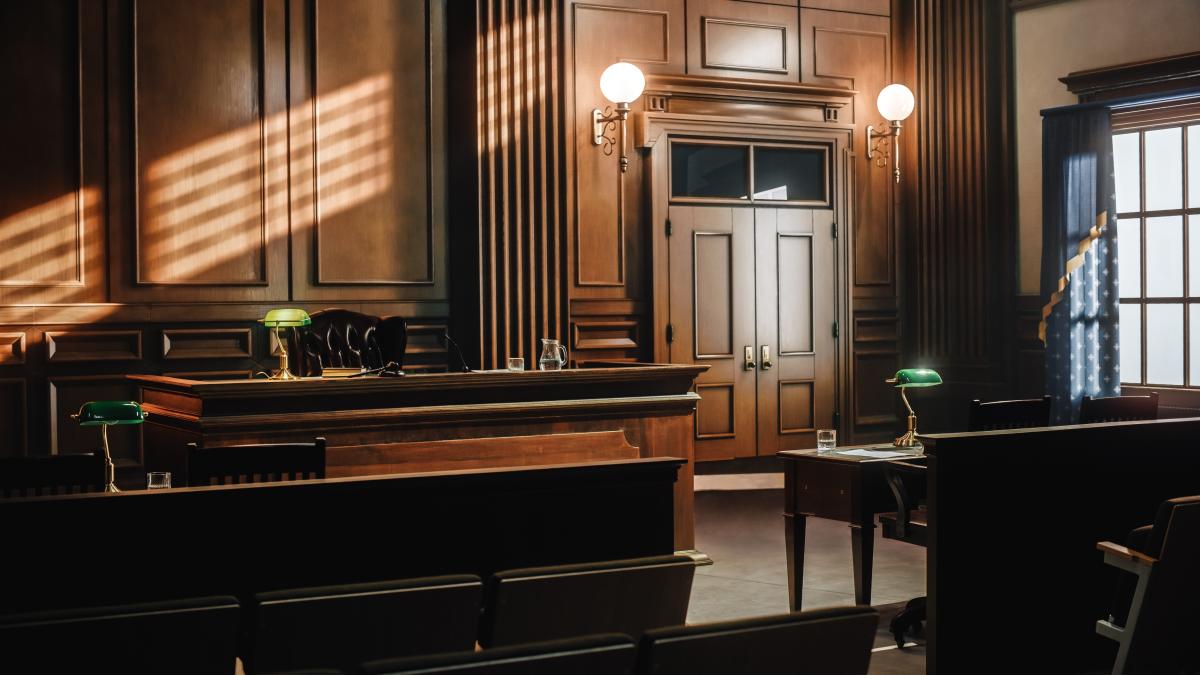How To Prepare for a Civil Court Appearance

If you are set to appear in court for the first time, you are likely stressed and wondering what to expect. Over 150,000 civil trials take place in the United States every year, but many people only know them as the dramatic and emotional affairs that we see in movies or television shows. The reality is much more mundane, and reading up on what to expect from your court date should go a long way toward easing your anxiety. This page will review some of the best practices for preparation, dress, and court etiquette.
How To Prepare Before a Court Appearance
There are a few things you can do to prepare for your civil court appearance in advance:
Learn the Relevant Laws
It will greatly enhance your chance of success at your trial if you take the time to learn about the laws relevant to your case, especially with the help of your attorney. Even if you do not intend to represent yourself in court, having a strong grasp of the field of litigation in question will make it easier to understand
Prepare Evidence
The quality of your evidence can make or break your success in court. You and your attorney will have to gather and sort through any available evidence that will work in your favor, including witness testimonies, your own testimony, and exhibits. If you have any evidence that will require additional preparation to present, such as audio or video recordings, let the court know as soon as possible.
Prepare Witnesses
Not all court cases require witnesses. However, they can be a major asset to your trial. Depending on the details of your case, your attorney may want to enlist lay witnesses and/or expert witnesses. Lay witnesses are neutral observers who were present at the scene and can attest to what happened, especially if the plaintiff and the defense disagree. An expert witness can provide insight into any specialized knowledge relevant to the case.
Disclose Necessary Information
In order to ensure a fair trial, both sides must disclose certain information to each other in advance. The information that is subject to discovery varies by state but typically includes any witnesses that will be called, any documents that will be presented as evidence, and how much the plaintiff is claiming in damages. Each side may opt to interview the other’s witnesses before the trial. Your attorney should be in contact with the opposition’s legal team to ensure that the proper discovery procedure is being followed.
What Should I Wear to Court?
You should take every opportunity to make a good impression on the judge and jury. This includes your choice of outfit. Your goal should be to present yourself professionally and show how seriously you take your court case.
Ideally, you should dress in a business professional manner, similar to what you would wear to a job interview. A suit, especially a tailored one, is a safe choice for any gender. It may also be appropriate to wear business casual attire such as polo shirts, conservative blouses, slacks, or even well-fitted jeans if you do not have a dress shirt. Consider neutral colors such as black, gray, navy, or khaki, and wear dress shoes rather than casual shoes.
Any sign of disrespect toward the court may negatively affect the jury’s opinion of you. Revealing or distressed clothing, loud colors or patterns, and casual dress could all unintentionally send the message that you do not care enough about the court process to dress appropriately.
Clothes are only one aspect of your appearance. Make sure to shave before showing up to court. If you wear makeup, make sure to apply it conservatively.
What Should I Bring to Court?
Bring a folder or envelope containing every document that you plan to submit as evidence. If you plan to use emails, social media posts, text messages, call records, or any other type of digital evidence, make sure that they are printed. If you are using audio or video recordings, prepare and print written transcripts. Bring photocopies of any primary documents, such as checks or letters. Make sure to bring at least three copies of each piece of evidence.
If you are giving testimony, prepare some notes beforehand so you can remember every necessary point. Writing your testimony ahead of time can also help you speak with more confidence. However, be aware that a judge may not allow you to read from your notes while testifying.
In addition to your evidence, bring a notepad and pen or pencil to take notes of any statements or questions that you may want to refer back to and to keep track of anything that you want to ask your attorney.
What To Do When You Arrive
It's always a good idea to plan for your court date in advance. This can help you feel more prepared and confident when you arrive at the courthouse.
Eat beforehand
You will most likely not be able to bring food into the courtroom, so make sure to eat before arriving.
Arrive early
Showing up late to your court date will leave a negative impression on the judge and jury. Give yourself ample time to find parking, go through security, speak with your attorney, and get comfortable with the space before your trial officially begins.
Speak with your attorney
In order to ease your anxiety and to prepare for your appearance, review with your attorney the major talking points and pieces of evidence that you will present.
Turn off your phone
Most courts have strict rules regarding phone use while a trial is in session, and purposefully breaking them can lead to a contempt charge. While you will likely not be charged with contempt for accidentally leaving your phone on, the judge may view it as a sign of disrespect if it rings or audibly vibrates during your court appearance.
Tips for Court
The court process is built on longstanding tradition and is subject to several rules and expectations of etiquette. It is essential that you exhibit professionalism and respect for the court during your court appearance. Keep the following guidelines in mind during your appearance.
Address the court professionally
How you address the judge, jury, and opposition communicates a great deal about how seriously you are taking the court process. Stand whenever speaking or spoken to, refer to the judge as “your honor,” and do not speak directly to the opposition.
Be honest and direct
Answer any questions that the judge asks you, but do not provide any additional information. Speak clearly and audibly. If you do not understand a question or are not sure about the answer, let the judge know rather than trying to guess.
Do not approach the bench
Plaintiffs, defendants, and attorneys should refrain from approaching the judge’s bench unless they have been given permission to do so. If the judge requests a piece of evidence, hand it to a bailiff, who will then pass it to the judge. Approaching the bench without permission is both disrespectful and a security threat.
How a Litigation Attorney Can Help
If you are involved in a civil court case, look for the help of an experienced litigation attorney. Preparing for trial is a complicated process involving filling out extensive paperwork, finding suitable witnesses, and gathering relevant evidence. A simple error in any of these steps could seriously affect your chances of success in court. Additionally, someone with only a layperson’s knowledge of civil law is unlikely to persuade a judge or jury when they are up against a professional legal team. A professional litigation attorney can help you avoid pitfalls and bring the experience and knowledge necessary to see that your trial process goes as smoothly as possible. Expertise.com’s legal directory can help you find an attorney who is right for your case.
Expertise.com StaffAuthor
Step into the world of Expertise.com, your go-to hub for credible insights. We don't take accuracy lightly around here. Our squad of expert reviewers, each a maestro in their field, has given the green light to every single article you'll find. From rigorous fact-checking to meticulous evaluations of service providers, we've got it all covered. So feel free to dive in and explore. The information you'll uncover has been stamped with the seal of approval by our top-notch experts.


![Mass Tort Lawsuit Timelines and Outcomes: What To Expect [2023] DUP IMAGE](https://images.ctfassets.net/k00sbju4hbzq/2sJ6vpBxbkuRa0riSN98dm/34b0353b8eff400e185a2ad51f27b1a1/Depositphotos_226254218_XL.jpg?fit=fill&w=384&q=75)

